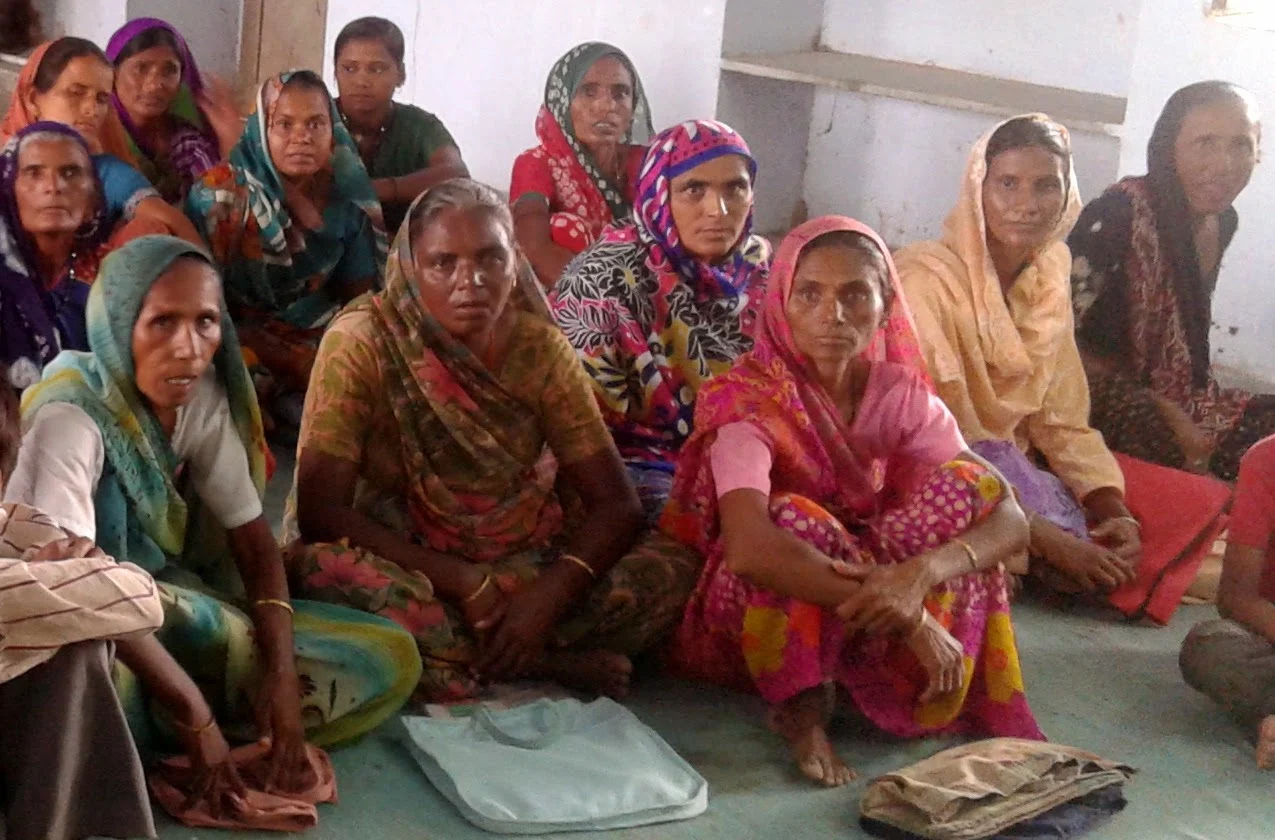Gujarat government officials' indifference leads to denial of pension, other benefits to helpless widows
 |
| Widows from Dasada during discussion |
A recent spot study, carried out by Gujarat’s premier NGO Navsarjan Trust, has found that majority of widows who were unable to get any job following their husbands’ death, may not be receiving any pension, despite Gujarat government directions on this. Based a focus group discussion (FGD) with tens of widows belonging to 16 villages of Patdi taluka, Surendranagar district, the study says that many of them have not received pension though they applied for it in accordance with a government resolution of 2012. It also found that a few women didn’t apply for pension because, though eligible, they were unaware of any scheme.
Claiming to be caring for widows, Gujarat’s woman and child department officially states (click HERE) that it is “sensitive towards women of 18-40 years, who have lost their husbands and initiates policy for their empowerment and economic living condition. For their economical living, under Manav Garima Yojna, Rs 3000 margin money is given to help them stand on their feet.” As for the widows in the age group 18-60 years, it adds, they are “provided monetary help” of Rs 500 per month plus Rs.80 per child (up to two children) “if they applied”.
Based on observations at the FGD, which was carried out first among seven widows of four villages of Patdi taluka – Panva, Odu, Patdi and Kherva – followed by a detailed interaction with widows of 12 other villages, the NGO represented to the local administration to “act urgently”, saying, “The issues of failure of government to comply by the pension scheme came to light after personal interaction with the widows.” The other 12 villages, whose widows participated in second round of FGD, were Jhejhara, Banavra, Upariyala, Rustamgadh, Kharaghoda (New), Mota Ubhada, Visavadi, Bajana, Dasada, Gavana, Savada and Pipli.
“In all, we met 27 widows. We found that though they were entitled to widow pension and other help, and their names were registered in government records, the officials has done next to nothing to move in that direction”, Kirit Rathod, a senior activist with the NGO who organized the FGD, said. He added, “Many of them have even approached local government officials but to no avail. One of the reasons we found was that widows fail to provide necessary documents. This should not, however, deter the officialdom to act proactively.”
The representation, handed over the Patdi mamlatdar, said, “Most of the women we talked to did not have any viable alternative means of livelihood. Their children are below 18 years of age. They live either in one-room house or in a hut. Majority of women are still in possession of above poverty line (APL) card, as a result of which they cannot get cheaper ration from the public distribution system. A few of them are incapacitated and cannot earn even if provided with jobs. One of the widows from Savada village was totally handicapped.”
 |
| Kirit Rathod talking with widows |
Putting up a list of six demands, the representation said, “Government officials should proactively survey widows and find out whether they get any benefit. If they are not included in any scheme, they should be provided at the earliest. All of them should be paid pension with retrospective effect. They should be included in the BPL list. Efforts should simultaneously be made to rehabilitate the widows in every possible way by helping them get alternative employment and making them economically independent.”


Comments